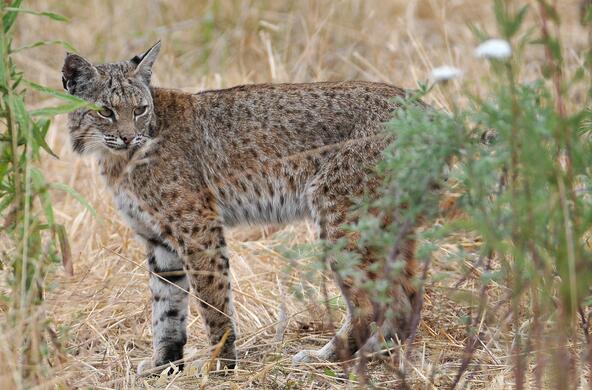Like many freshwater scientists, I suffer from Cousteau envy. To me, fresh waters are fascinating, but they get no respect from the public. No one talks about the hour-long TV special they saw about freshwater life ("Alors, now Philippe lowers the bathyscaph into ze creek"), all the little kids I meet want to grow up to be marine biologists (not stream ecologists) and as far as I know, Pixar has no plans for "Finding Wabash," the touching story of a small catfish's journey to reunite with his family in a Midwestern river.
And it is true that there are no coral reefs in fresh water, nor any octopuses, squids, starfish or sand dollars, and hardly any whales, dolphins, or sharks. These and many other captivating creatures live only in the ocean, so we must go to the ocean to see them.
It may surprise you to learn that fresh waters contain a rich diversity of life, by some measures even greater than the ocean's. Even though fresh waters cover only 1 percent of the Earth's surface (compared to the ocean's 71 percent), they support almost 10 percent of all known species on our planet, and fully one-third of known fish species. In terms of numbers, this is 125,000 known animal species in fresh water, and probably tens of thousands more that haven't yet been discovered and named.
This great diversity of species arose in part because of the great diversity of freshwater habitats, from icy mountain streams to woodland pools to underground streams and caves, to wide muddy rivers to the Great Lakes. Each of these diverse habitats supports its own distinctive set of species.
But even more important, fresh waters are "islands" surrounded by a sea of land. Fish and many other kinds of freshwater animals cannot easily cross from one river system to the next, meaning that different species have evolved in different river systems. In ancient landscapes like the American Southeast, each river system has its own species of fish and shellfish, adding up to a very large number of species worldwide.
But this focus on numbers can distract us from what is really interesting about freshwater life – the species themselves. What sorts of things live in fresh waters? To begin with, fresh waters contain quite a few creatures that you probably thought lived only in the ocean. Sponges are common in our lakes and streams, and jellyfish even crop up in local ponds and lakes from time to time. And although we may think of shrimp and crabs as ocean-dwellers, hundreds of species live in fresh waters, mainly in the tropics.
Whales and dolphins do live mainly in the ocean, but there are a few freshwater species, and they are interesting ones. My favorite is the Irrawaddy dolphin, an endangered animal that has learned to fish cooperatively with people. Burmese fishermen call these dolphins over to their boats; the dolphins then chase fish towards the boat where the fisherman nets them, sharing the catch with their dolphin helpers. Another freshwater dolphin, the baiji, just went extinct because its only habitat, the Yangtze River in China, has been so badly degraded by people.
Fresh waters also contain 700-pound stingrays, 12-foot-long catfish, 10-foot long armored garfish, mussels that seduce fish into carrying their larvae, lily pads large enough to support the weight of a child, hundreds of kinds of turtles, electric eels, archer fish that spray water onto leaves to knock bugs into the water and archer mussels that make a fountain of water to attract fish, 7-pound crayfish, freshwater "oysters" that cement themselves to river stones and are called "crocodile eggs" by locals, crocodiles, a nearly countless variety of tiny, bright fish, and about a thousand other things that are as interesting as anything you'd see on a coral reef.
So by all means, go snorkeling around coral reefs and enjoy those fascinating TV documentaries about the oceans. The ocean is magnificent and full of amazing, beautiful life. But also try to take some time to appreciate freshwater life. Locally, my favorite spot for a refreshing summer snorkel is the Delaware River between Narrowsburg and Port Jervis, which is a fine, clear river full of life, including lots of fish, aquatic insects, shellfish and freshwater sponges. And no sharks!








